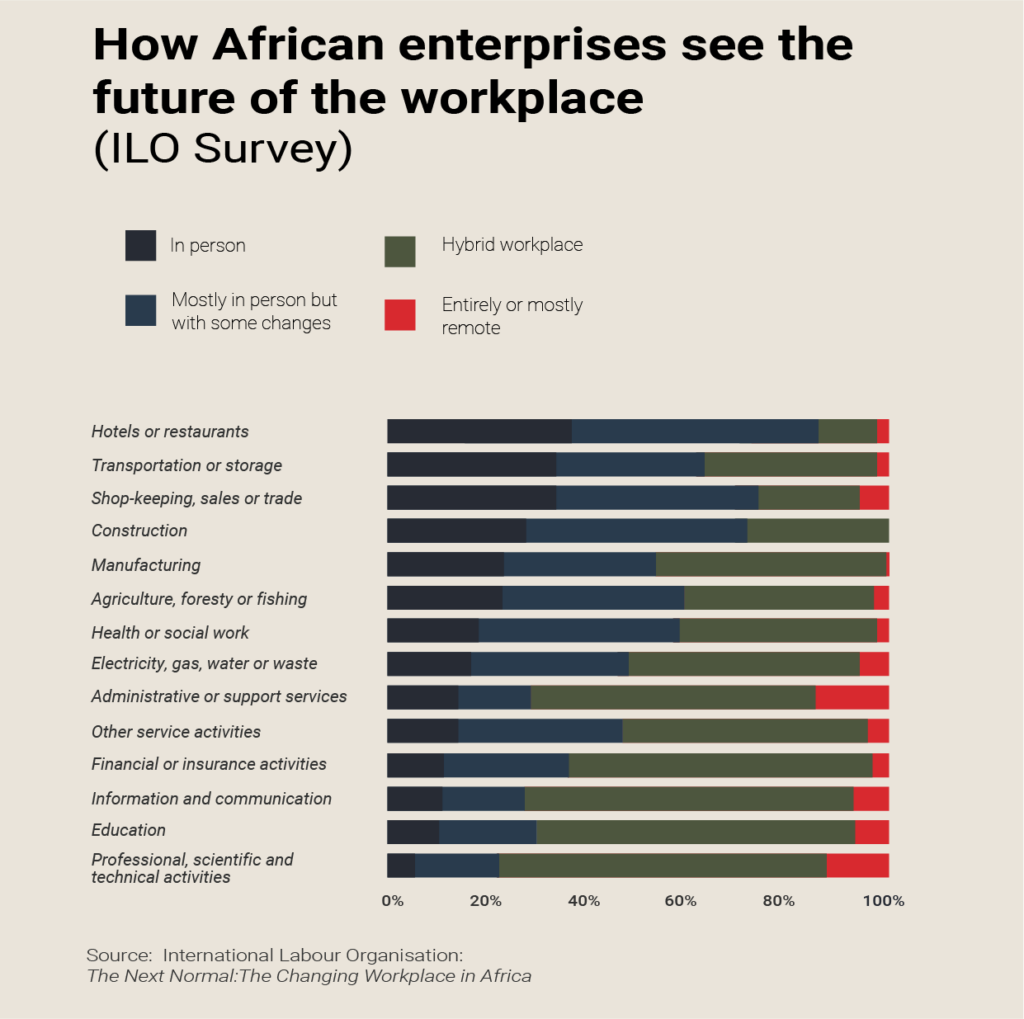The pandemic may be winding down, but remote work looks set to continue. Recent studies give insight into how senior management and employees are figuring out the best approach to remote working.
At the core of the remote working debate lies a contradiction. On the one hand, up to 85% of leaders say that the transition to working from home has made it difficult for them to have confidence in employees’ productivity. On the other, 87% of employees say they are less productive at work.
This is according to an extensive survey conducted by Microsoft of 20 000 people and included data from Microsoft products.
The claim that employees are working harder is backed up by multiple studies. A report by the International Labour Organisation (ILO) found that 46% of formal businesses had improved their productivity as a result of Covid-19-related changes.
A study by researchers from the University of Kentucky on the effects of working from home on audit quality during the pandemic found: “On average, working from home results in a 1.3 percentage point decrease in the probability of non-reliance restatements, an 11 percent decrease in discretionary accruals, and an 8.1 percentage point increase in the probability of issuing going concern opinions.”
The authors note that they “expect the positive effect of working from home on audit quality would hold in the long term.”

Seeing is believing
The Microsoft report notes, “Many leaders and managers are missing the old visual cues of what it means to be productive because they can’t ‘see’ who is hard at work by walking down the hall or past the conference room.” This leads to productivity paranoia in managers and productivity theatre in workers.
This lack of trust is also highlighted by the ILO. Its 2021 survey found that less than ten percent of managers chose: “We trust our employees to work a certain number of hours each day,” as the statement which best describes how they monitor performance.
CFOs and senior managers also have other concerns when it comes to remote working, as highlighted by an article in CPA Journal, including:
- Reduced ability to monitor day-to-day tasks
- Reduced oversight, which makes it tougher to identify wrongdoing, including fraud
- Reduction in informal conversations and deterioration of team culture
- That working from home makes it tougher to protect confidential data
- That home IT infrastructure may be more vulnerable to data breaches
How to improve remote work policy
CFOs and senior managers are turning to technology and making provision for expenditure to improve remote working conditions and mitigate risks. A Garner survey found that 71 percent of organisations give financial support for infrastructure costs related to remote work. The survey also notes, “CFOs should expect HR to request ongoing funding for initiatives such as virtual mental health support (currently offered by 91% of organizations), access to wellness apps (77%) and mental health self-care tools (74%).”
CFOs and senior management may also have to improve their communication skills to better manage staff who work remotely.
Employee feedback is an area that leaders can improve in. The Microsoft report notes that 57% of companies rarely or never ask for employee feedback. “And even if their company is collecting feedback, 75% of employees (and 80% of managers) think it’s not often enough, and 75% of business decision-makers say it’s not actionable enough.”
Saul Josselowitz, Financial Director at Babereki Employee Financial Solutions highlighted open communication as essential in a CFOTalks Podcast episode.
Josselowitz’s management style is relaxed, and he trusts his employees rather than demanding regular check-ins. However, he also made sure he was available to his employees should they need to reach out.
The Microsoft report notes, “Employees list authenticity as the #1 quality a manager can have in supporting them to do their best work (85%), and 83% of business decision-makers say it’s important for their senior leadership to show up authentically.”
Figuring out the ideal remote work policies for your workplace takes time and effort. CFOClub South Africa CFOs together to share knowledge on how to tackle our toughest problems.
Find out how you can join this community of financial leaders here.

